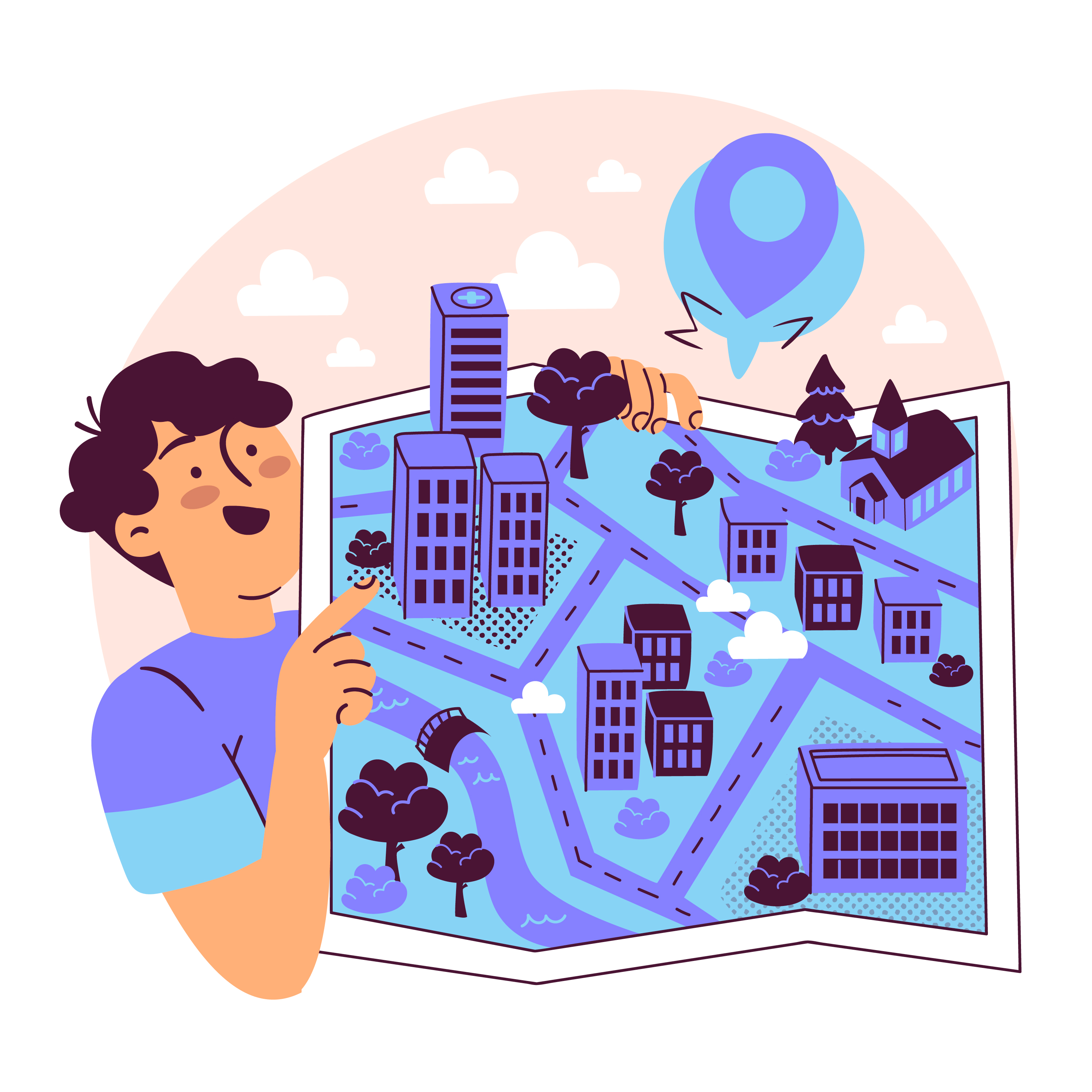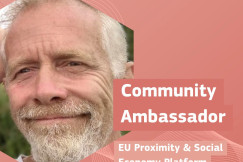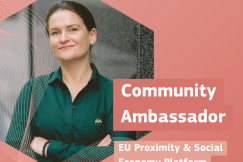Articles
30 April 2025
6th World Forum on Local Economic Development: Building Bridges to the Financing for Development Conference
Articles
30 April 2025
Financing the ecosystem
Proximity and social economy
Agri-food
+9 more
Login / create an account to be able to react
-
9

The 6th World Forum on Local Economic Development (WFLED) in Seville convened 2,500 participants from over 100 countries to address financing challenges for territories, with particular emphasis on Social and Solidarity Economy (SSE) mechanisms. This article details the forum's key financing proposals, including the integration of solidarity finance instruments into existing frameworks and ecosystem building approaches that recognize SSE's unique value proposition. It highlights the strategic connection to the upcoming Fourth International Conference on Financing for Development (FfD4), providing valuable insights for local development practitioners, SSE organizations, and policymakers working in the proximity economy. By emphasising territorial financing perspectives and collaborative approaches to resource mobilization, the content directly supports those working to create more inclusive financial systems that respond to community needs rather than extractive profit models.
Topics
Spain
Financial Institutions and Investors
International Organisations
Local Authorities
National authorities
Networks and Federations / Confederations
Regional Authorities
Social Economy Entity
-
Thematic area
-
-
Financing the ecosystem
-
-
Interlinkages with other sectors
-
-
Proximity and social economy
-
Agri-food
-
Cultural and creative industries
-
Energy-renewables
-
Mobility, transport, automotive
-
-
Action areas and keywords
-
-
Circular Economy
-
Reinforcing Business to Business collaboration for greener and circular value chains
-
Sustainable Finance
-
-
Ecosystem focus
-
-
Social economy
-
-
Scope of activity
-
-
International
-
Local/neighbourhood
-
Share
In dark times for multilateralism and for those who dedicate their lives to fighting inequalities at the local level, this Conference was held. These types of events are key as they provide a series of intangible assets that are crucial in the work of such organizations and individuals. Besides the exchange of knowledge or networking, there is something else which is built in these meetings, something we can call “relational assets”. Such assets are more than connections, they create shared understanding, shared sense of purpose, mutual empowerment and a degree of emotional resonance that are deeply needed in these times when news constantly tell us that our work and our mission are little more than redundant.
In this context, the 6th World Forum on Local Economic Development (WFLED) concluded successfully in Seville, Spain, brought together over 2,500 participants from more than 100 countries between April 1-4, 2025. Under the theme "Just Transition, Development Financing, and Territorial Solutions," the forum served as a critical platform for addressing the financing challenges facing territories worldwide and creating momentum for the upcoming Fourth International Conference on Financing for Development (FfD4) to be held in Seville from June 30 to July 3, 2025.
Connecting Local Financing to Global Agendas
As emphasised in the forum's final declaration, the connection with FfD4 represents "an opportunity to highlight and reclaim once more the role of territories and their actors in providing solutions to global challenges." The strategic timing of these two major events provides a unique opportunity to bridge local economic needs with global financing frameworks. The Social and Solidarity Economy was well represented in Seville, and we hope it will maintain this presence at the FfD4 in July as well.
During the high-level plenary session "Territories Facing the FfD4 Agenda," Eva Granados, Secretary of State for International Cooperation of Spain, emphasiszed that "Spain remains committed to sustainable development, and we want to take advantage of the 6th World Forum on Local Economic Development to tell the world and to look for new financing paradigms."
2. Key Financing Proposals from the Forum
The forum's final declaration included several concrete proposals directed specifically toward FfD4, focusing on creating a fair and decentralized financial architecture that can adequately support local economic development:
- Recognition of local governments as key partners in mobilizing complementary financing to national resources and implementing sustainable and inclusive local economic development
- Establishment of a formal intergovernmental space through the FfD process for monitoring and exchanging practices on financing localization
- Guaranteeing fiscal autonomy and decentralization to mobilize local wealth and create a leverage effect for financing sustainable and resilient investments
- Promoting horizontal exchange of innovative experiences and solutions, and the integration of social and solidarity finance instruments into existing financing schemes
- Prioritising public investment in care policies and systems as central components of local economic development
3. Social and Solidarity Economy: A Path Forward
The forum highlighted the vital role of the Social and Solidarity Economy (SSE) in transforming local economies. A dedicated panel on "Territorial Experiences of Alternative Financing for Microenterprises, SMEs, and the Social and Solidarity Economy" showcased innovative financing mechanisms being implemented worldwide.
Aude Saldana, Secretary General of the World Social and Solidarity Economy Forum, moderated this session, which featured presentations on solidarity funds, cooperative financing models, and impact investment approaches specifically designed for SSE entities.
Yousra Hamed, Financial Inclusion Specialist at the ILO, emphasised that "access to finance remains one of the most significant barriers for SSE entities globally, and we need innovative approaches that recognize their unique value proposition and governance models."
It was a pity that the soon-to-be-published report from the Technical Working Group on Financial Access and Support from the UN Task Force on SSE was not presented at the Forum. DIESIS Network has actively participated in the elaboration of this report and we understand it can be a relevant asset in the work of Local Development actors.
Another relevant element is the need to engage in ecosystem building. Thus, the panel on "Territorial Ecosystems for Development Financing" highlighted the need for coordinated approaches that bring together different financing sources and mechanisms at the territorial level. Javier Cortés, Director of the Basque Agency for Development Cooperation Elankidetza, noted that "successful financing of local economic development requires creating ecosystems that combine public resources, private investment, and solidarity finance in ways that respond to territorial priorities." However, in our view, such ecosystem building needs to address the power struggle in funds allocation, there is a clear bias in the system towards profit maximizing activities which often are extracting value from local communities in exchange for very little investment or job creation.
4. Looking Ahead to FfD4
As the world prepares for the FfD4 conference in Seville, the 6th WFLED has laid important groundwork by articulating clear territorial perspectives on financing for development. The forum's final declaration will be presented at FfD4, advocating for a financing framework that recognizes the central role of local and regional governments in achieving sustainable development.
As Bruno Quick, Executive Director of SEBRAE (Brazil), stated during the closing plenary, "We need to move from centralized financing models to ones that recognize that sustainable development happens in places, through people, and requires adequate financial resources at the territorial level."
Comments (0)
See also
-
29
Financing the Ecosystem Recap: December – January
- Categories
- Partnerships Regenerative Green Transition Skills +68 more
-
18
PSE Platform Ambassador highlight: Nick Weir and Open Food Network Europe
- Categories
- Partnerships Regenerative Green Transition Skills +68 more
-
15
PSE Platform Ambassador highlight: Viktorija Bražiūnaitė, LISVA
- Categories
- Partnerships Regenerative Green Transition Skills +68 more




